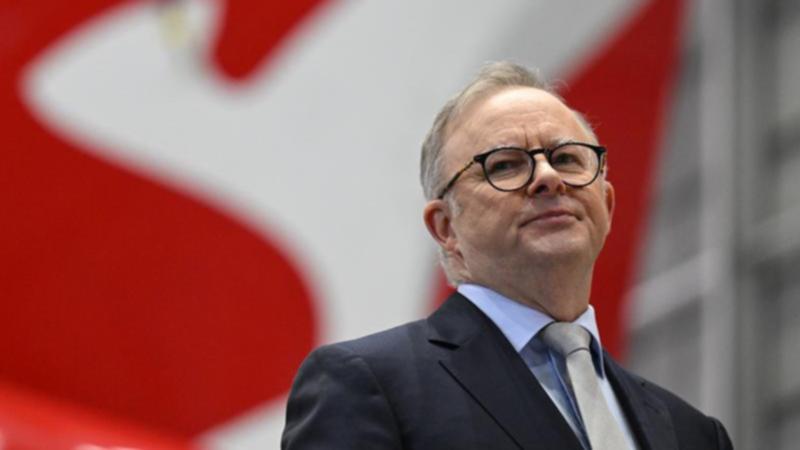KATINA CURTIS: PM’s ‘everyone does it’ defence adds to public disdain for politicians
KATINA CURTIS: Scrutiny of political perks adds to the public perception that politicians are in it for themselves. The rules should be tightened.

Sean Johnson is fed up.
The former Liberal staffer has been campaigning for more than two years now for an end to gifts and largesse to politicians.
His Open Politics site and social media feed pull no punches against either side when MPs break what rules do exist — but there are few if any consequences other than some bad press.
Sign up to The Nightly's newsletters.
Get the first look at the digital newspaper, curated daily stories and breaking headlines delivered to your inbox.
By continuing you agree to our Terms and Privacy Policy.Anthony Albanese’s Qantas upgrades imbroglio this week is a perfect example.
The Prime Minister has declared upgrades on more than 20 flights over the years, some related to his job, some for personal travel.
Sure, who wouldn’t take an upgrade if offered, and it’s all there on the public register for those who care to scroll through pages and pages of scanned declarations of gifts.
But it’s not that simple.
Firstly, the loopholes in the rules are so big you could drive an A380 through them.
This week’s scrutiny is on Albanese thanks to a new book about Qantas’ influence-peddling but there are plenty of others who have felt the scrutiny of the spotlight.
But not everything that smells off to the public is actually a breach.
Take access to the Chairman’s Lounge that Qantas offers its top-tier clients … and politicians.
Most politicians have declared their membership to this and Virgin’s equivalent, a few said they took it and then handed it back, while a handful — including WA Senator Michaelia Cash — are silent on it.
The handbook guiding senators on filling in their declaration forms is similar but not identical to the one for Lower House members, including on advice about not having to declare entertainment or benefits that are widely offered.
Both give the example of a dinner hosted by an ambassador; the Senate’s version adds “or access to airline lounges”.
On top of this, declarations are slow, published in a largely non-searchable form, and often contain scant detail about the value or circumstances (with the notable exception of NSW Nationals senator Ross Cadell, whose register of interests induces sudden onset TMI).
Johnson says the idea that mere disclosure is a panacea is absurd anyway.
“Normal reciprocity means that when someone gives you something, you feel inclined to return the favour, it’s just the way humans are wired,” he told this column.
“I’m not having to go at Albo specifically, because he is really not that different from National and Liberal MPs and even independents and Greens in terms of accepting upgrades and — most of them — Qantas Chairman’s Lounge.
“It’s just such normalised behaviour where look, everyone’s been doing it so long, and they just don’t see any issue with it.”
That can be seen in Albanese’s general outrage at being asked questions about the upgrades, including at least two he took for personal trips while transport minister.
There are legitimate questions he should answer about whether this breached the ministerial standards of ethics at the time, and about his non-declaration of upgrades for his then-wife who was a NSW MP.
There are also legitimate questions for Peter Dutton over private flights paid for by Hancock Prospecting, also declared.
Albanese’s Tuesday attack on journalist Joe Aston, an excerpt from whose book sparked this latest scrutiny of the PM’s judgment, was over the top and floundering.
And it wasn’t correct. Aston quickly produced the receipts, showing the first line on the first page of the book declares his history as a Liberal staffer.

The PM’s office was also checking its (literal) receipts, going back over 28 years of travel bookings before declaring late on Wednesday: “The Prime Minister did not ever call Alan Joyce seeking an upgrade.”
It also insists he never communicated his personal travel plans — hey mate, just thought you should know, I’m headed to Europe next week — even in a way that didn’t entail explicitly asking for the benefits.
But other attempts to point to this or that person failing to declare something or remember that they declared something don’t particularly help either.
It all contributes to the kind of “pox on both your houses” and “they’re all on the gravy train anyway” attitude from the public towards politicians.
This all came at the same time as the trio of experts examining Australia’s response to COVID were lamenting the dearth of public trust in governments and institutions that will make it much, much harder to contain the next pandemic.
The standard we expect from our politicians is rightly high.
Tightening the rules around gifts, requiring more details including their value to be disclosed, and considering an outright ban would go a long way to helping.
But don’t hold your breath waiting for the gravy plane to stop.

